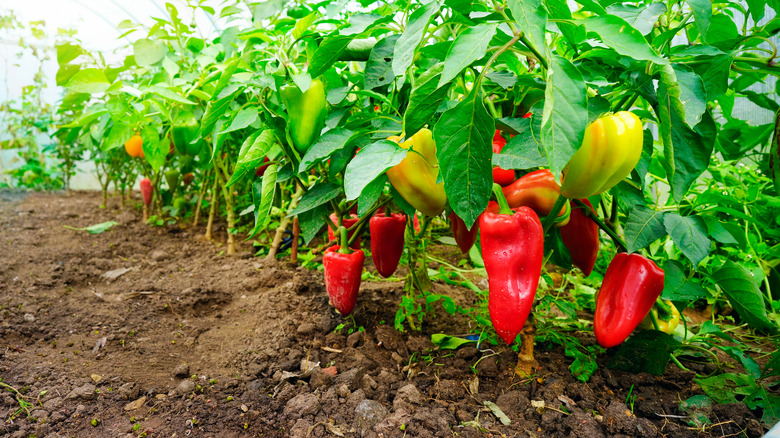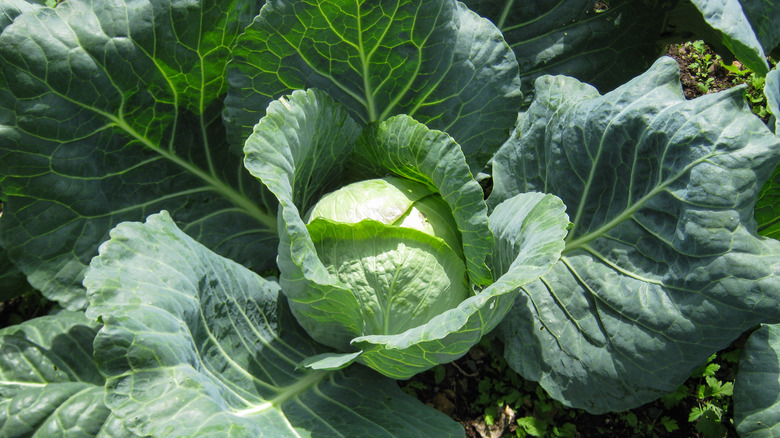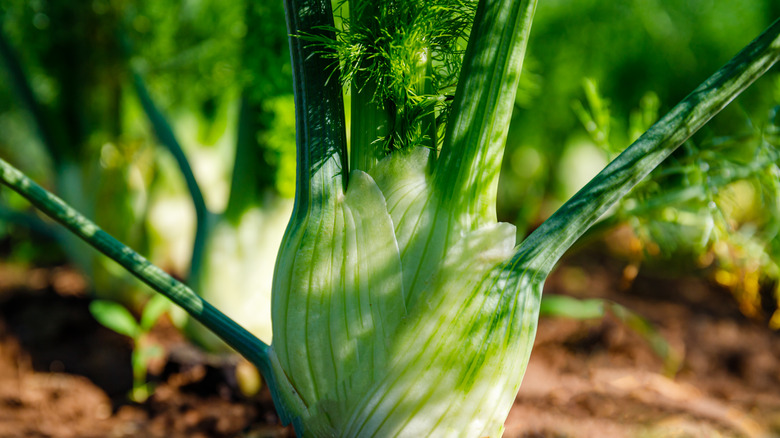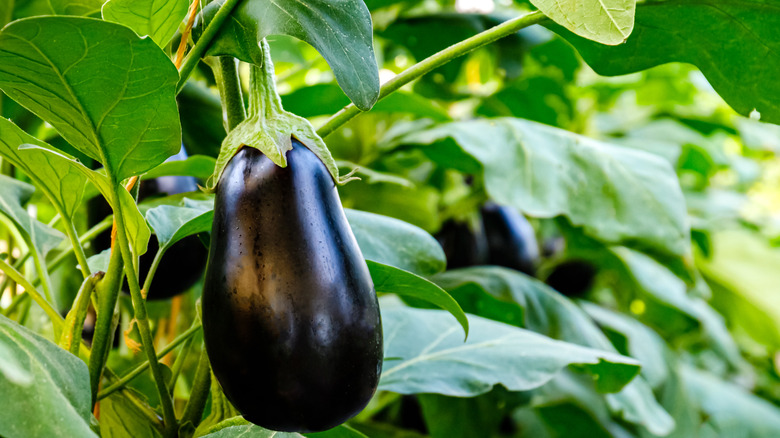Plants You'll Want To Keep Away From Your Peppers In The Garden
Peppers are among the most popular vegetables to grow in the garden — and with so many different varieties ranging in taste from sweet to spicy, there's a favorite out there for everyone. In addition to the wide selection, peppers are also popular among gardeners of all skill levels since the most common varieties tend to be pretty easy to grow. But while peppers, for the most part, are relatively easy to grow in most climates, they can still benefit from companion planting, just like many other plants. "Pepper companion planting can be an organic way to protect your crops from pests or it could help improve pollination of fruit and vegetable crops,' says Sue Sanderson, horticultural executive at Thompson & Morgan (per Homes & Gardens). Still, just as planting certain plants next to your pepper plants can aid their growth and development, planting others nearby can actually hinder healthy growth of your peppers.
While it's usually possible to at least grow them all in the same garden, it's best to avoid planting these plant varieties directly next to your pepper plants.
Brassica
Plants that fall under the brassica family — the most common being vegetables like cabbage, broccoli, cauliflower, kale, and Brussels sprouts — are best planted a safe distance away from your peppers. While these healthy greens are great to grow in your garden, they also naturally crave the same nutrients as your peppers. Planting vegetables belonging to the brassica family directly next to your pepper plants forces them to compete for nutrients in the soil, and they both require a lot to grow to their full potential. Planting them on separate ends of your garden — or at least with enough of a buffer in between to allow them their own defined space — can help ensure each of your plants are able to receive all that they need from the soil, resulting in healthier, heartier, stronger plants.
Planting your pepper plants away from any brassica vegetables also ensures each can grow in the types of soil that they prefer. While pepper plants and brassicas depend on a lot of the same nutrients in the soil, they each thrive most under different pH levels — with brassica preferring soil with a more neutral pH and peppers requiring soil that is more acidic (especially if you are growing spicier pepper varieties).
Fennel
Fennel is best planted away from all other vegetables, peppers included. According to Thomas Asche, editor of the Organic Edible Garden, certain varieties of fennel — such as Florence fennel — produce a chemical that is capable of slowing or stopping the growth of nearby vegetable plants. "When growing fennel, we recommend giving the crop a buffer zone of flowers on either side," he said, noting the importance of the buffer flowers not being so tall that they block the fennel or other nearby plants from receiving enough sunlight (per Homes & Gardens).
Fennel also tends to attract swallowtail butterflies. While lovely to look at and nice to have visit your yard from time to time, they lay eggs that give rise to caterpillars — caterpillars that can make an easy feast of your tasty peppers when hatched in close proximity. If you do choose to plant fennel, planting it far from any other vegetables will ensure your chances at a fruitful garden aren't squandered right off the bat.
Nightshades
While some argue that tomatoes can actually make great companion plants for peppers, other vegetables belonging to the nightshade family — such as eggplants and potatoes — should be planted on the other end of your garden or with a border of another type of plant between them. That's because peppers are susceptible to the same diseases as these nightshade varieties, which puts your pepper plants at risk of bacterial and fungal infection should any of your nightshades become infected.
In addition to being able to spread the same diseases among one another, peppers and nightshades also rely on similar nutrients from the soil. Planting nightshades near your pepper plants runs the risk of the soil being depleted of essential nutrients in that area, with each not having enough of what they need to fully grow. Eggplants, potatoes, and other nightshade varieties can also attract insects such as potato beetles and flea beetles, which also wouldn't mind making a meal of your pepper plants.



